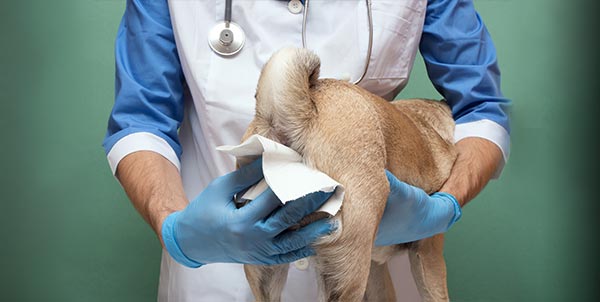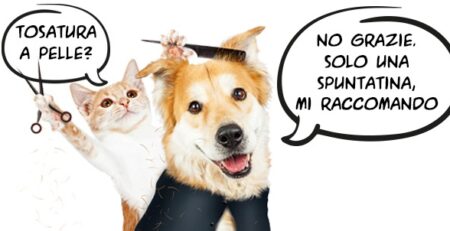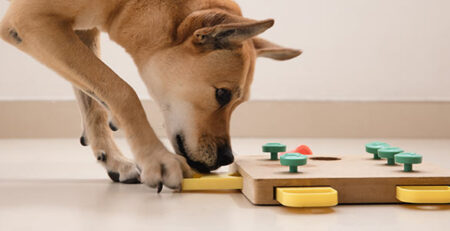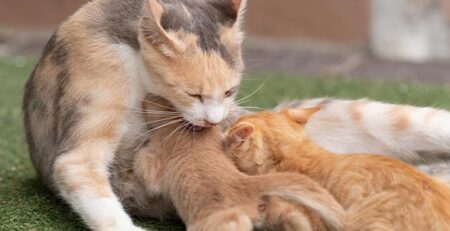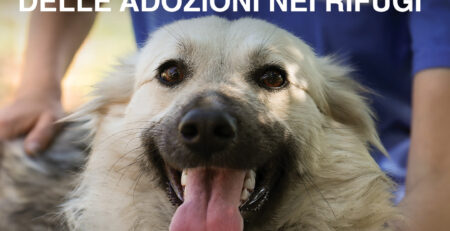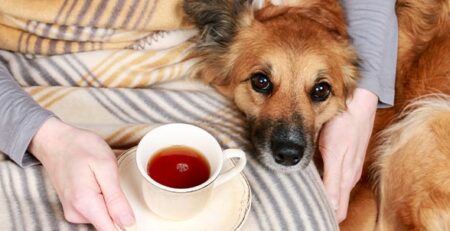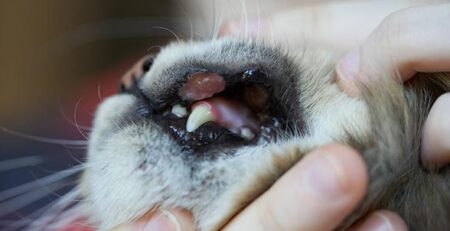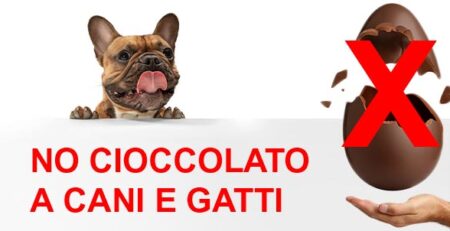Table of Contents
Is your dog rubbing its butt on the ground, itching, in pain, giving off a bad smell? Probably his perianal sacs are inflamed and need to be emptied. Here are all the reasons that cause the inflammation known as sacculitis and remedies to restore relief for your dog.
The perianal glands are a pair of small, externally secreting glands located next to the anal orifice in dogs and cats.
They produce and release through two small ducts a yellowish or brownish oily liquid with a very strong odor whose main function is to lubricate the rectum and anus of the dog and cat when they perform their needs.
Do you know the other fundamental function of the fluid produced by the perianal glands?
This liquid contains chemical components, pheromones, which have a particular odor that is different for each animal: at the moment the dog or cat emits their fecal droppings, the liquid imprints a kind of signature, unique and exclusive .
Dogs and cats, therefore, mark their territory not only through urine, but also through feces: when they pause to sniff or smell each other’s butts, they recognize each other, study each other and inform each other as if they were reading the identity card of their fellow humans.
It may happen, unfortunately, that these glands fail to empty during the act of defecation: the fluid produced stagnates in the sacs and causes inflammation.
Due to the presence of the pathogenic microorganisms that develop, the inflammation can degenerate into infection to, in severe cases, fistulization with the formation of pus-containing vesicles.
This condition is known as sacculitis.
What are the symptoms of sacculitis?
The inflammation causes the dog to experience pain, itching and severe discomfort .
In an attempt to find relief, the animal starts rubbing its butt on the floor: it brings its pelvis forward, raises its tail and walks around rubbing its hind legs and butt against the floor.
The so-called “wheelbarrow” motion is intended to crush the perianal glands and relieve the dog or cat of pain and itching.
Other symptoms include licking of the anus and the presence of abscesses in the perianal area.
What are the predisposing factors that cause inflammation of the perianal glands?
The actual causes leading to the occurrence of this inflammation are not yet known, but there are triggers and predisposing factors.
The best known are:
-Anatomical problems, such as malformation of ducts and their subsequent obstruction
-Dermatologic diseases, as they lead to an increased susceptibility to infections of the skin and glands
-Recurrent diarrhea, because the low stool consistency does not facilitate the squeezing of the glands and their secretion stagnates
The latter are usually adverse reactions, i.e., the response of the animal’s body to the ingestion of a particular food or substances in it.
Nutrition plays, therefore, an important role.
How much does nutrition affect it?
If your dog shows recurrent anal gland problems, he may be intolerant to grains that are known to be allergenic and inflammatory.
Dog kibble that contains too much grain and too little protein is unfortunately widespread.
Eliminate foods that contain corn, oatmeal, wheat, rice or soy, and if your dog is used to eating beef or chicken, switch to a new protein: a diet that is always the same can trigger an allergic inflammatory response that, if not properly treated, often becomes the cause of chronic anal problems.
There are predisposed breeds and at-risk individuals
Inflammation of the perianal glands rarely affects cats but is instead very common in dogs.
The most susceptible individuals are usually small dogs:
– Chihuahua
– Poodles
– Maltese
– Yorkshire
Inflammation of the perianal glands is also common in older dogs, pregnant females, and overweight or obese dogs.
What to do if the dog has inflamed perianal glands?
If your dog’s perianal glands are inflamed, run immediately to your trusted veterinarian before the situation worsens.
The veterinarian, if necessary, will drain them and if he finds symptoms of infection, he will prescribe antibiotics and anti-inflammatories.
Manual emptying of the perianal glands should be done only if the dog continues to rub and cannot solve the problem on its own.
Emptying is an operation that is the sole responsibility of the veterinarian.
The frequency of emptying the dog’s perianal glands should be done periodically according to how much fluid the dog accumulates.
If the problem is chronic, your Veterinarian may deem it appropriate to have your dog undergo sacculectomy surgery, which involves removal of the perianal glands.
At La Veterinaria Clinic you can book basic and specialist examinations to assess the health status of your dog or cat and perform on-site diagnostic tests that the case requires.
Also, remember that in case of need and urgency, La Veterinaria Clinic is always open h24 every day including holidays and with First Aid service from 8 pm to 8 am.
For the joy of seeing them HAPPY.

